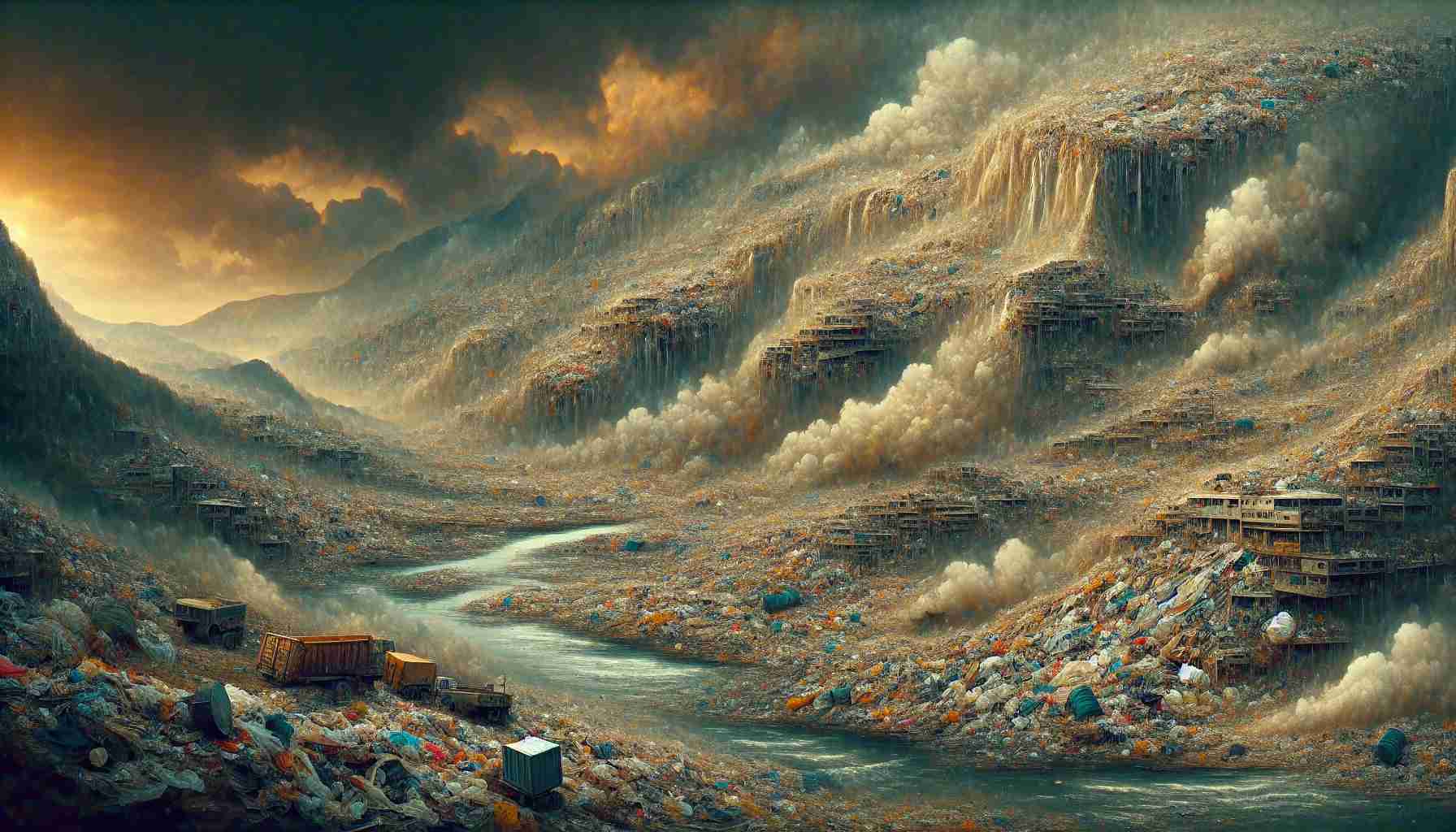Authorities are grappling with a new environmental crisis in the city of Veria, where untreated bio-waste has been diverted to the Aliakmon River, posing a serious health risk to its 60,000 residents. Ever since the biological sludge processing line was discontinued, all the sludge has been flowing into the river untreated, turning the Veria biological treatment plant into the biggest polluter in the region.
The issue, repeatedly raised in the Municipal Council, remains unresolved, with the case pending in court since 2018 without any progress so far. According to environmental groups, no actions have been taken to address the problem, exacerbating the situation.
Nikos Aslanoglou, a member of the Veria Ecological Group and other environmental organizations, revealed that the mismanagement of the biological treatment plant started a decade ago when a private contractor took over and canceled the sludge processing line. Furthermore, reports suggest that for seven years, sludge from other cities across Greece was dumped into the river in exchange for fees.
In a shocking revelation, Aslanoglou disclosed that local authorities are aware of the situation but have deliberately chosen not to take action. Documented measurements by authorities confirm the substantial amount of waste pouring into the river, highlighting the severity of the crisis that urgently requires intervention.
Evidential videos and photos obtained by “Jungle” corroborate the gravity of the situation and emphasize the immediate need for intervention to mitigate the environmental catastrophe.
New Environmental Crisis Unfolds in Veria: Bio-Waste Contamination Continues
Authorities continue to grapple with the ongoing environmental crisis in Veria, as untreated bio-waste finds its way into the Aliakmon River, posing a significant threat to the city’s 60,000 residents. While the issue originated from the discontinuation of the biological sludge processing line, further details shed light on a decade-long mismanagement of the Veria biological treatment plant.
What are the key questions surrounding the bio-waste crisis in Veria?
1. Why was the sludge processing line canceled by the private contractor a decade ago?
The decision to halt the processing line has raised questions about the motivations behind such a crucial environmental infrastructure change.
2. What role did the exchange of sludge from other cities play in exacerbating the contamination?
Reports indicating the dumping of sludge from various Greek cities into the river for financial gain underscore potential regulatory loopholes and ethical concerns.
3. How have local authorities justified their inaction despite being aware of the escalating crisis?
Understanding the reasoning behind the authorities’ failure to intervene is essential to addressing accountability and preventing similar lapses in the future.
Key Challenges and Controversies:
– Lack of Regulatory Oversight: The crisis underscores the need for stricter regulations and oversight in managing bio-waste disposal processes, both locally and nationwide.
– Public Health Concerns: The health risks posed to residents and the ecosystem highlight the urgency of resolving the contamination issue promptly.
– Transparency and Accountability: The transparency of decision-making processes and accountability of involved parties are under scrutiny, raising questions about governance practices and ethical standards.
Advantages and Disadvantages:
– Advantages: The crisis has brought attention to the crucial need for better waste management practices and enforcement mechanisms to safeguard the environment and public health.
– Disadvantages: Delayed intervention and ongoing pollution could lead to long-term ecological damage, as well as potential legal, financial, and reputational repercussions for the stakeholders involved.
For more information on environmental sustainability and waste management practices, visit Environmental Protection Agency.



